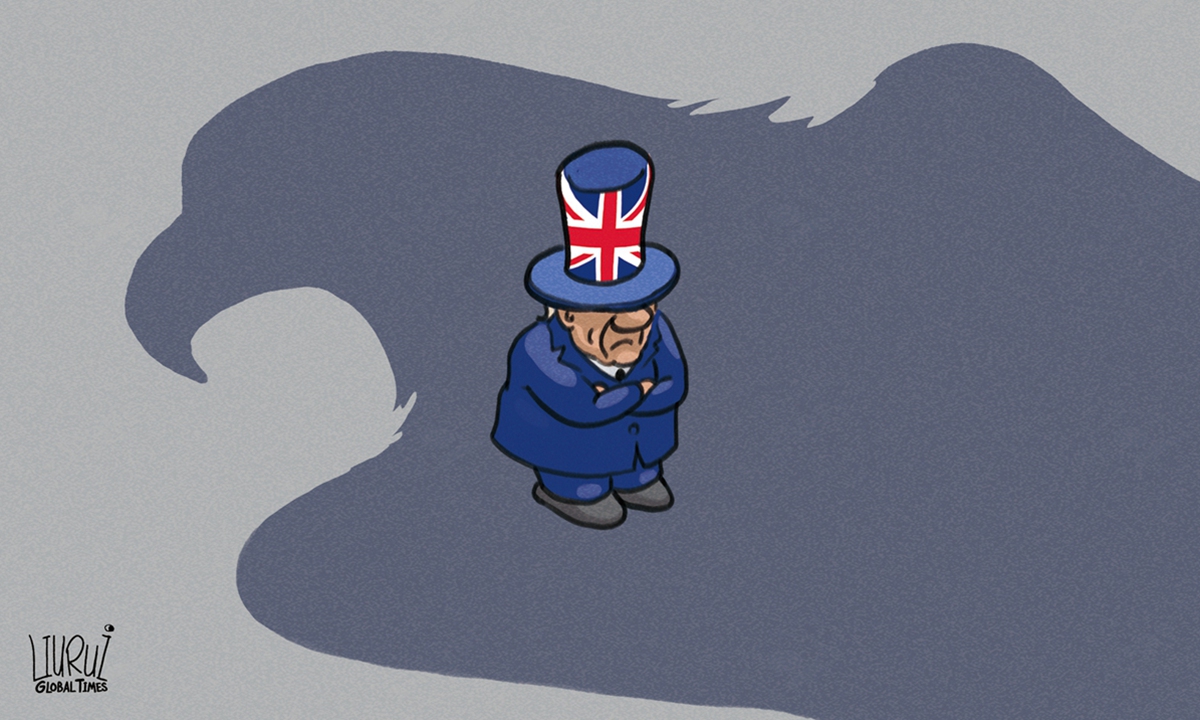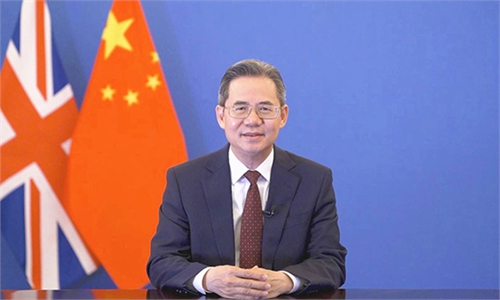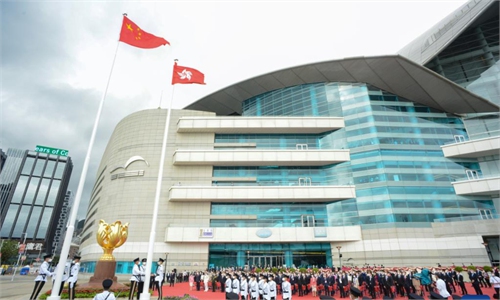
UK US relations Illustration: Liu Rui/GT
Things have taken a turn one year after a Chinese company reached a deal with the UK side to buy Newport Wafer Fab, a lesser-known microchip factory. After the US opposed the acquisition, the British government launched a new national security review. According to media reports, Washington, especially the US Congress, will exert "strong pressure" to block the deal. The conclusion of the new security review is about to be released, which reportedly "could lead to the cancellation of the deal."In our view, the whole process is very much like the US forcing the UK to swallow a bitter fruit. This is because it clearly violates international business rules to interfere in mutually beneficial, compliant, and lawful business collaboration between other countries. And it is evident that the cancellation is bound to cause damage to UK's interests and credibility. However, the British government didn't dare to raise objections in the face of such an overbearing and illegal act of Washington. Instead, it appears as if it is obsequious to make a complaint and as if it wants to reject the US but still acts welcoming. This shows that something has gone wrong in London's mentality and spirit toward China.
It should be pointed out that such an abnormality is not an isolated case: It is typical today in the US and the West. In the words of the BBC, this shows a "confusing" state in the UK's China policy.
Even the British have to admit that Newport Wafer Fab, although "the UK's largest semiconductor manufacturing facility," is already outdated "old technology." The plant can manufacture 200nm wafer chips, far behind the world's most advanced 3nm process. It does not involve any intelligence in the defense industry or highly sensitive technology, so there is no so-called national security risk. Washington and some in the UK are making a big deal out of "security," proving their mindset about China has reached a severe level of craziness and blindness.
A Chinese company wants to acquire this chip factory because the combination of both sides can produce a win-win effect in the business, as they complement each other in terms of products and markets. It is extremely ridiculous and narrow-minded for some to assume that the acquisition will help the development or even the rise of China's semiconductor industry.
Before the Chinese takeover, the British microchip factory was heavily indebted. In other words, it was not a sought-after target, but an ordinary enterprise in trouble and waiting to be rescued. Thanks to the division of labor in economic globalization, investment from China has given it a new life, but the "national security review" is cutting off its life. An employee told the British media pessimistically: "The future wasn't looking very bright." As economic issues are being hyped as security and political ones, the victims are well beyond the more than 450 employees of this factory.
British Prime Minister Boris Johnson said in his parliamentary testimony last year about the takeover that he did not want to drive Chinese investment away from Britain because of the "anti-China spirit." Johnson also assigned his national security adviser to conduct a security review, concluding in April that there were not enough security issues in the takeover and "the UK government will not intervene." But it was soon compromised under pressure from Washington, and the UK launched a new investigation. Regrettably, Britain's rational and pragmatic attitude toward China has been losing ground under the attack of anti-China forces in the UK and Washington. The UK is placing itself in an awkward and imbalanced position.
The BBC said in the report that this case has raised a bigger question for many British - what is the government's over-arching China strategy? How far does it balance Chinese investment with security risks? It is not difficult to see that these are profound doubts about the current "confusing" China policy of the UK. When the biggest consideration in formulating a China policy gradually shifts from the vital interests of British nationals to illusory ideology or imaginary security risks, or even Washington's opinions, more and more British people or enterprises will feel the unwarranted pain.
As far as this takeover is concerned, 10 Downing Street may still be weighing the final decision. If it still succumbs to irrational and discriminatory demands, it needs to at least apologize to the British employees innocently involved and prepare to compensate the Chinese enterprise. This can probably retrieve the minimum level of Britain's dignity.


